Seminars, Workshops and Research
Fall 2023 Workshops
Close Writing: Pairing Creative Writing With Close Reading to Increase Engagement
and Analytic Skill (1-day online workshop)
With Scott Jarvie, Department of English, and Michael Lockett, Michigan State University
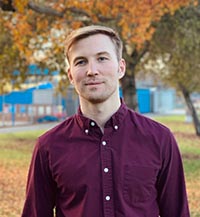 Last semester, we developed a literature review of extant studies on coupling post-secondary
creative writing practices with analytic learning outcomes.
Last semester, we developed a literature review of extant studies on coupling post-secondary
creative writing practices with analytic learning outcomes.
This semester, findings from this review are the foundation of a one-day, 90-minute participatory seminar in which SJSU faculty will encounter new perspectives on writing pedagogy and experiment with the practices. In this workshop, we will share a variety of creative practices which ask students to attend closely to-–and play with–-language in their writing, an approach we call ‘close writing’.
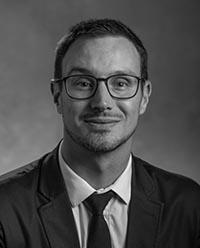 We will begin by detailing the theoretical and scholarly basis behind this approach,
focusing particularly on close writing’s capacity to support students’ development
of both writing skill and reading/analysis. Participants in the workshop will then
have the opportunity to experiment and share similar practices from their own classrooms.
We’ll end by discussing together some possibilities for bringing this work into higher
education classrooms.
We will begin by detailing the theoretical and scholarly basis behind this approach,
focusing particularly on close writing’s capacity to support students’ development
of both writing skill and reading/analysis. Participants in the workshop will then
have the opportunity to experiment and share similar practices from their own classrooms.
We’ll end by discussing together some possibilities for bringing this work into higher
education classrooms.
Workshop Dates:
Wednesday, October 4, 10:30AM-11:45AM
Monday, October 23, 12:00PM-1:15PM
Monday, October 30, 12:00PM-1:15PM
Exploring Counter Story-Telling (1-day online workshop)
With Anne F. Walker, Department of English and Comparative Literature
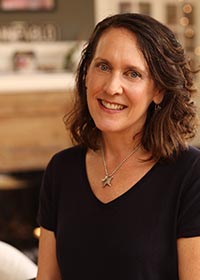 Counter storytelling helps students feel safe and seen in the classroom space. It
says, “you being you is crucial to all of your activities now and in the future.”
It builds community. Who we are as people not only defines how we are in school,
but what we want and need in relation to architecture, urban planning, gardening,
policy, medicine and so forth. Our narratives help define our needs and help us collectively
imagine solutions. Counter storytelling creates inclusivity and helps to support connection/importance
to/of ancestors. It can open doors to deep history through this moment. Counter storytelling
works against dominant hegemonic ideals that tell marginalized people to leave personal
and cultural experiences outside the door.
Counter storytelling helps students feel safe and seen in the classroom space. It
says, “you being you is crucial to all of your activities now and in the future.”
It builds community. Who we are as people not only defines how we are in school,
but what we want and need in relation to architecture, urban planning, gardening,
policy, medicine and so forth. Our narratives help define our needs and help us collectively
imagine solutions. Counter storytelling creates inclusivity and helps to support connection/importance
to/of ancestors. It can open doors to deep history through this moment. Counter storytelling
works against dominant hegemonic ideals that tell marginalized people to leave personal
and cultural experiences outside the door.
Workshop Dates:
Monday, September 18, 1:30PM-2:45PM
Friday, October 6, 12:00PM-1:15PM
Monday, October 16, 1:30PM-2:45PM
Designing Writing Courses with a Growth Mindset (4-week PAID online workshop)
With Kristen Cole, Department of Communication Studies
 Many students struggle with imposter phenomenon when it comes to writing, which leads
to feelings that they are not capable of succeeding in writing. These feelings are
more prevalent among students from marginalized groups and can lead to equity gaps
in student learning and success. One way to mitigate imposter phenomenon is developing
interventions based on a growth mindset.
Many students struggle with imposter phenomenon when it comes to writing, which leads
to feelings that they are not capable of succeeding in writing. These feelings are
more prevalent among students from marginalized groups and can lead to equity gaps
in student learning and success. One way to mitigate imposter phenomenon is developing
interventions based on a growth mindset.
This workshop will cover the definition of a growth mindset, how a growth mindset can positively impact student learning and equity, and some broad strategies for designing a course with a growth mindset. I will also provide an overview of a sample course design that utilizes the academic publishing model to develop a growth mindset. Workshop participants will have the opportunity to develop their own course materials based on the sample course model.
All participants will be paid $500.
Workshop Dates:
Begins the week of September 24
Ends the week of October 15
Sign-Ups Are Closed. Workshop is full.
Exploring Multimedia and Authentic Writing in the Curriculum (4-week PAID online workshop)
With Lara Ervin-Kassab, Department of Teacher Education
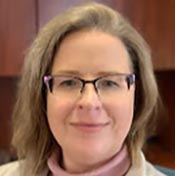 SJSU is known for innovating in the technology realm. Our mission and vision are rooted
in social justice, equity, and inclusion. These goals cannot be met by continuing
to value only one way of expressing ideas about the world around us. This collaborative
workshop is intended to open up what is
SJSU is known for innovating in the technology realm. Our mission and vision are rooted
in social justice, equity, and inclusion. These goals cannot be met by continuing
to value only one way of expressing ideas about the world around us. This collaborative
workshop is intended to open up what is
commonly understood as “writing” across the curriculum. We will explore how the inclusion
of choice of format in writing assignments will increase motivation in our students
to write. Expanding our ideas and skills around what it means to assess writing will
be an opportunity to innovate in our teaching work.
Over the course of five weeks, participating faculty will explore the “hidden writing” in multimedia, authentic, and alternate forms of writing across the curriculum. We will explore inclusive practices such as translanguaging, multiple means of communication, and bringing aspects of creativity and play into writing assignments. Together we will generate ideas, rubrics, and reflect on experiences of creating accessible, inclusive spaces for student voice and choice in demonstrating learning beyond report and essay writing. Participants will also have the opportunity to create a collaborative self-study manuscript about this work for potential publication or scholarship of engagement.
All participants will be paid $500.
Workshop Dates:
Begins the week of October 8
Ends the week of October 29
Sign-Ups Are Closed. Workshop is full.
Closing 100W Writing Gaps: Preparing Students for Discipline Specific Writing (4-week
PAID online workshop)
With Gregory Tomlinson, Department of History
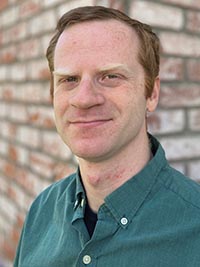 Students are excited to take specific courses related to their majors but they frequently
dread the approach of their assigned 100W class. The demanding reading and writing
requirements (not to mention the unpleasant memories of 100W their classmates share
with them) make taking writing classes a daunting challenge. As instructors, however,
there are steps we can take to ease students into the rigorous demands of dedicated
writing workshops while also sharing sound writing and research approaches for future
use.
Students are excited to take specific courses related to their majors but they frequently
dread the approach of their assigned 100W class. The demanding reading and writing
requirements (not to mention the unpleasant memories of 100W their classmates share
with them) make taking writing classes a daunting challenge. As instructors, however,
there are steps we can take to ease students into the rigorous demands of dedicated
writing workshops while also sharing sound writing and research approaches for future
use.
This workshop focuses on assessing and addressing student concerns in 100W classes. We will learn about common hurdles incoming students face and how to best coach struggling writers. Beyond discussing how to introduce students to 100W, this course will also include various incremental exercises designed to evaluate student progress, build confidence with writing and revising, and to tailor instructional approaches to fit different learning approaches. The ultimate goal of this workshop is to consider a fundamental reorientation of 100W courses from a rigid, systematic process to one that encourages student creativity, increases comfort with making and fixing mistakes, and transforms the methodologies of academic writing into a rewarding rather than frustrating experience.
All participants will be paid $500.
Workshop Dates:
Begins the week of October 22
Ends the week of November 16
Sign-Ups Are Closed. Workshop is full.
100W, 200W, and GWAR Course Coordinators Online Get-Together
With Tom Moriarty, Director of Writing Across the Curriculum
An informal get-together to talk about all things 100W, 200W, and GWAR. From ChatGPT to course management and enrollment, this is a place where coordinators can ask questions and share ideas.
Select Times You Could Attend Here
Team-based Writing Projects at SJSU
With Alesya Petty, Department of English
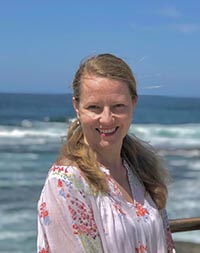 Writing courses traditionally rely on assignments that students complete individually,
but much of the professional world and scholarly literature are produced and written
collaboratively. Although project-based learning (PBL) has been around for nearly
a century, co-written projects, essays, and papers have been gaining popularity more
recently when tech tools for content sharing have become ubiquitous. This project
aims to find out what type of collaborative writing projects are used across the curriculum
at SJSU and how instructors can leverage co-writing practices in their courses. More
focus will be given to outlining the types of major assignment projects with various
degrees of writers’ engagement and responsibility as well as grading options that
support agency, inclusivity, and equitable asset-based thinking for student writers.
Writing courses traditionally rely on assignments that students complete individually,
but much of the professional world and scholarly literature are produced and written
collaboratively. Although project-based learning (PBL) has been around for nearly
a century, co-written projects, essays, and papers have been gaining popularity more
recently when tech tools for content sharing have become ubiquitous. This project
aims to find out what type of collaborative writing projects are used across the curriculum
at SJSU and how instructors can leverage co-writing practices in their courses. More
focus will be given to outlining the types of major assignment projects with various
degrees of writers’ engagement and responsibility as well as grading options that
support agency, inclusivity, and equitable asset-based thinking for student writers.
ChatGPT or Not to Chat
With Cornelia Finkbeiner, Department of Nursing
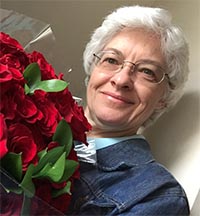 ChatGPT has generated much interest in recent months and shown many areas where it
is a very viable product used effortlessly and appropriately. This research project
will allow individuals to compare a sample of their general writing with one generated
through ChatGPT, using similar key words, to determine how they stack up. Students
will be given the opportunity to assess what can be learned through the ChatGPT response—if
ChatGPT could improve their writing, allow demonstration of higher-order skills such
as critical thinking, or increase creativity allowing for a higher-quality of work.
ChatGPT has generated much interest in recent months and shown many areas where it
is a very viable product used effortlessly and appropriately. This research project
will allow individuals to compare a sample of their general writing with one generated
through ChatGPT, using similar key words, to determine how they stack up. Students
will be given the opportunity to assess what can be learned through the ChatGPT response—if
ChatGPT could improve their writing, allow demonstration of higher-order skills such
as critical thinking, or increase creativity allowing for a higher-quality of work.